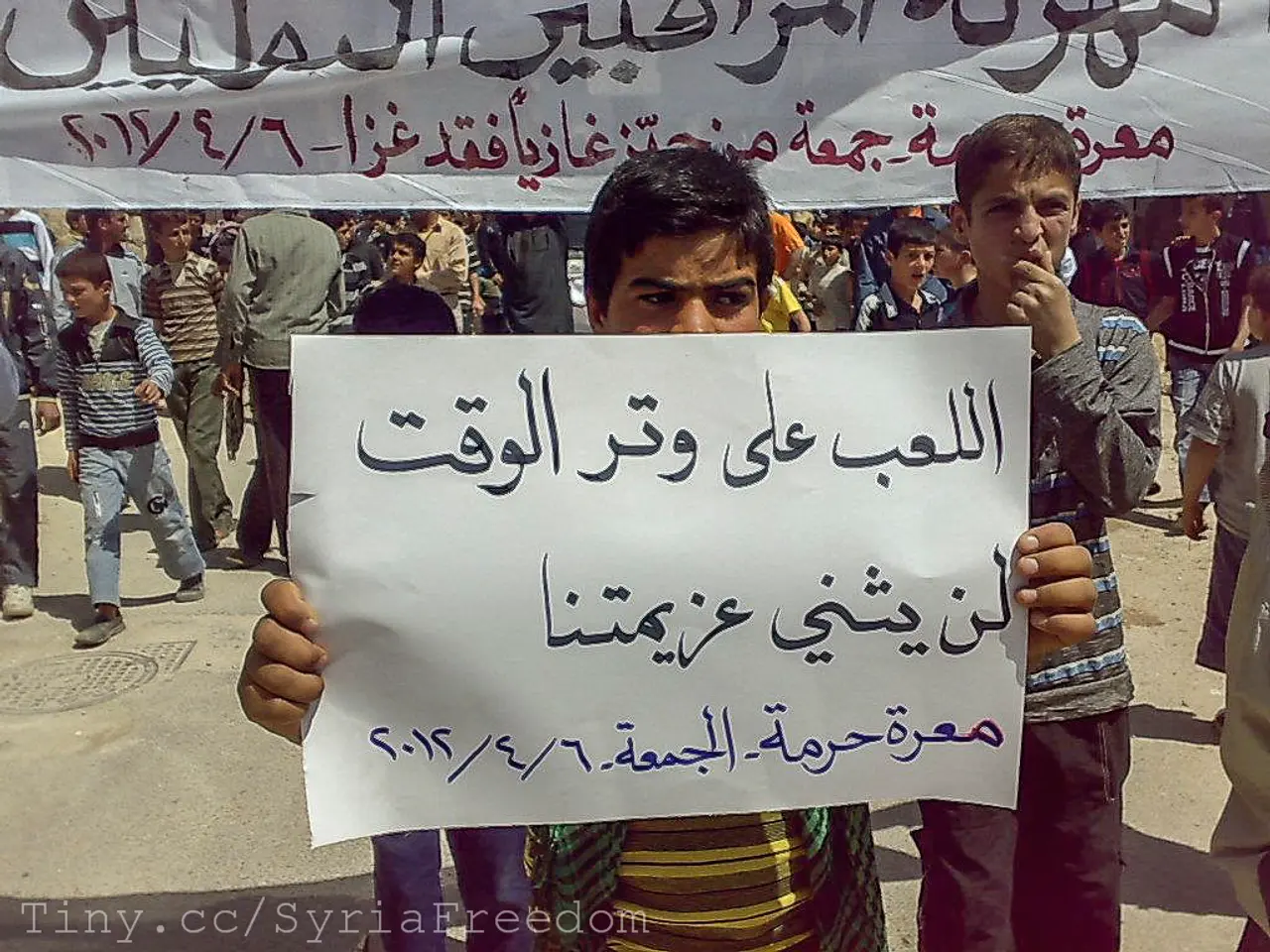Activist in Saxony nearing end of hunger strike: "Time is running out"
In Dresden, Germany, Kurdish activist Hamza A. has been in detention for deportation since mid-June, following his arrest at a bureaucratic appointment in June. The activist, who came to the Federal Republic and filed an asylum application in May 2019, has been on a hunger strike since June 24th, according to reports.
However, the Ministry of the Interior has denied that Hamza A. has been on hunger strike for 41 days. The ministry also emphasized that Hamza A.'s asylum application was rejected in 2019, and any appeals were unsuccessful.
During a visit on Friday, Saxon state parliamentarian Jule Nagel from The Left found Hamza A. "very weak." Osman Oguz from the Saxon Refugee Council (SRC) stated that Hamza A. has "only days left, not weeks."
Jule Nagel has made a small parliamentary question to the Ministry of the Interior regarding the handling of Hamza A.'s hunger strike, offering of medical, pastoral, and psychological care, and consideration of transfer to a hospital.
Hamza A. has been involved in several banned Kurdish parties in Turkey and has been arrested and detained multiple times. He has also reportedly suffered from police harassment in Istanbul.
The Administrative Court of Chemnitz confirmed the legality of Hamza A.'s deportation on July 2nd. If the expedited procedure underway at the court secures Hamza A.'s deportation, he would be threatened with removal from Germany.
In a related development, the Saxon Refugee Council has warned about planned mass deportations to Afghanistan in July. The Left party rejects the Dresden facility, suggesting that the money used for its operation could be better spent on advisory and support structures.
It is important to note that no public or widely reported information is available regarding Hamza A.'s situation in Dresden. If this is a recent or developing case, updates may not yet be documented in accessible sources. For detailed and current information, it is recommended to consult local German news outlets, human rights organizations monitoring political detainees, or official statements from German authorities in Dresden.
In a separate incident, Jana Frielinghaus reported on the deportation of Robert A., which was stopped after a protest. Robert A. came to Germany as a baby in 1994. The Left party has been vocal in its opposition to such deportations.
The situation surrounding Hamza A. in Dresden is a matter of concern for many, given his critical condition after nearly a month and a half on hunger strike. The case highlights the complexities and challenges faced by refugees and asylum seekers in Germany.
- The scientific community could investigate the effects of prolonged hunger strikes on an individual's health-and-wellness, particularly mental-health, to provide valuable insights into Hamza A.'s current condition.
- Given the political implications of Hamza A.'s case and the potential threat of crime-and-justice incidents related to his deportation, policy-and-legislation may need to be re-evaluated to ensure the protection of human rights and prevent further instances of injustice.
- General news outlets should continue to cover Hamza A.'s case, providing updates to the public on his current situation and any developments regarding his deportation.
- In light of the Saxon Refugee Council's warning about mass deportations to Afghanistan, mental-health therapies-and-treatments and support structures could be strengthened to address the needs of refugees and asylum seekers facing similar challenges.




